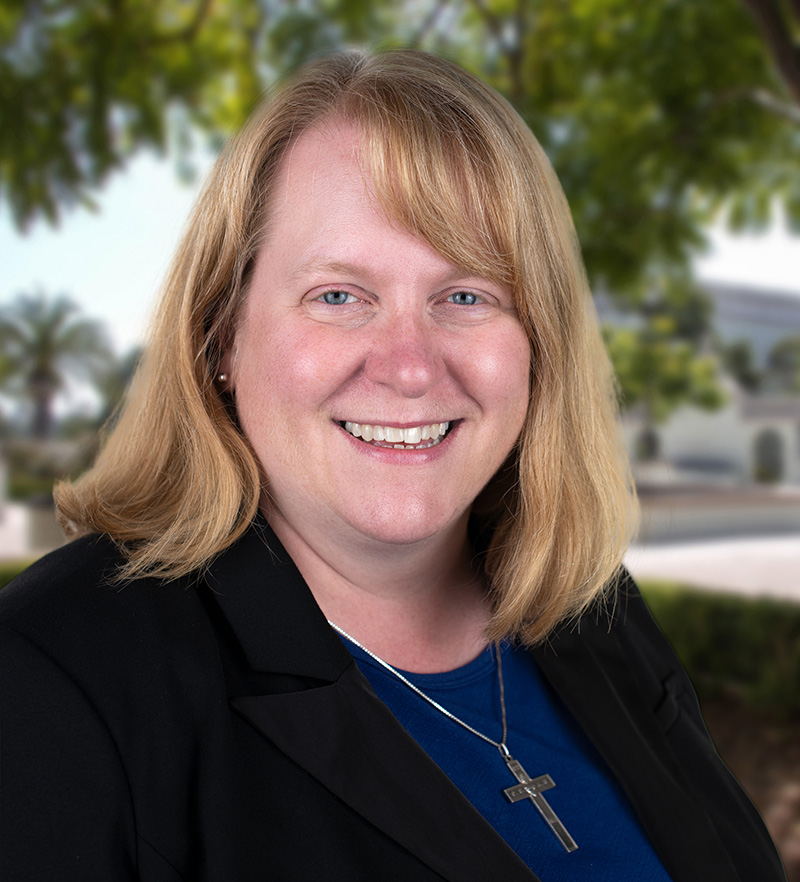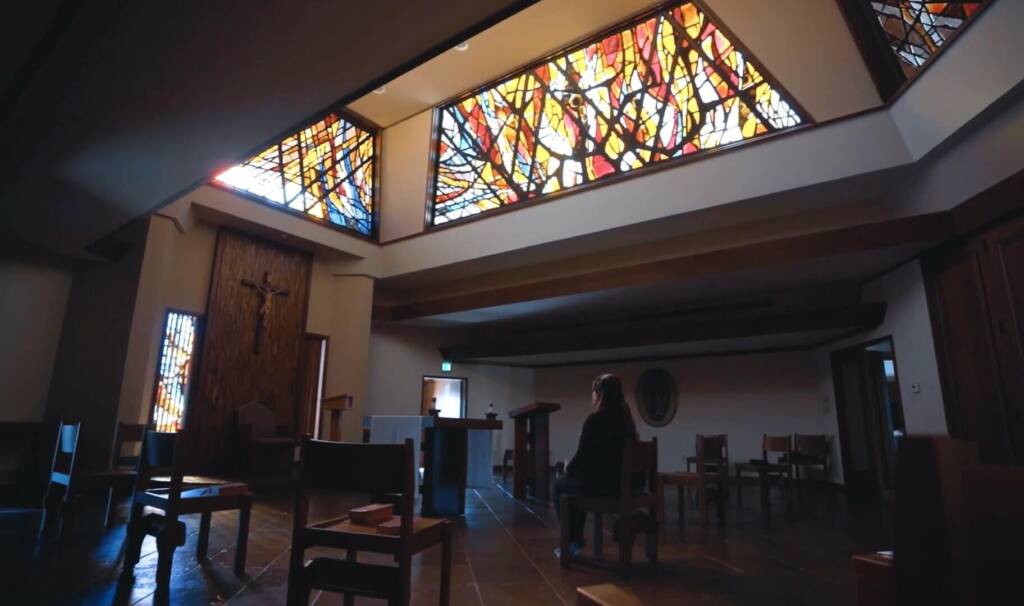Psalm 100:2 (English Standard Version)
Serve the Lord with gladness!
Come into his presence with singing!
Though we may often think of a calling as applying to priests or those in vowed religious life, in truth the Bible teaches that all human beings are called to serve God in our own way. Your service does not have to be your vocation, though your job or career path may directly align with how you choose to serve.
Serving God has a much wider application to all aspects of your life, in how you relate to others and how you find yourself within the world. We can find the best way to serve God in the teachings of Jesus Christ and applications for our own lives in the examples set forth by St. Francis.
What Does It Mean to Serve God?
We first have to understand what it means to serve God, because God doesn’t need anything. God is all-powerful — we are meant to call on him during our times of need, not the other way around. Instead, God calls us to His service by supplying us with grace, talent and passion so that we may better accomplish His purposes in the world.
The greatest example of this comes from the life of Jesus, who was the manifestation of God’s saving love in the world. Jesus spent his life in service to others, but most especially those in need — including the poor, the sick, the ostracized and anyone who would be neglected by society. So great was Jesus’ love for all of us — for we are all children of God — that he willingly gave his own life.
Mark 10:45
For even the Son of Man came not to be served but to serve, and to give his life as a ransom for many.
To serve God, then, is to follow the example of Jesus’ life and earthly ministry to serve others. It is through service that we can truly express our love for God, for His creation and for one another. The Scriptures detail what is required to serve in Jesus’ name — specifically Matthew 25:34–40, where Jesus explains that caring for the least of our brothers and sisters is what is required to enter the kingdom of heaven.
Matthew 25:35–40
For I was hungry and you gave me food, I was thirsty and you gave me drink, I was a stranger and you welcomed me, I was naked and you clothed me, I was sick and you visited me, I was in prison and you came to me.’ Then the righteous will answer him, saying, ‘Lord, when did we see you hungry and feed you, or thirsty and give you drink? And when did we see you a stranger and welcome you, or naked and clothe you? And when did we see you sick or in prison and visit you?’ And the King will answer them, ‘Truly, I say to you, as you did it to one of the least of these my brothers, you did it to me.’
In the Catholic tradition we understand service to others as part of the Works of Mercy, specifically seven Corporal Works of Mercy and seven Spiritual Works of Mercy.
The Corporal Works of Mercy are a model of how we should meet the physical, earthly needs of others. To be active within the world and treat each person as if they were Christ in disguise.
- Feed the hungry
- Give drink to the thirsty
- Shelter the homeless
- Visit the sick
- Visit the prisoners
- Bury the dead
- Give alms to the poor
If the corporal works are about the well-being of the body, then the Spiritual Works of Mercy are about how we support spiritual well-being — both for ourselves and for others.
- Counsel the doubtful
- Instruct the ignorant
- Admonish the sinner
- Comfort the sorrowful
- Forgive injuries
- Bear wrongs patiently
- Pray for the living and the dead
(We should clarify that the recommendation to “admonish” isn’t to berate or judge others, but to offer counsel and advice that is friendly and earnest.)
Serving God by serving others is the heart of compassion of Jesus’ teachings, the Son of God who always identified himself with the least of his brethren. For his entire life after his conversion, St. Francis said that we should follow in Jesus’ footprints, to take his actions to heart and realize them within our daily lives.
What Does Scripture Say About Serving God?
Scripture has much to teach us about the different ways we may serve others and serve God. To get to the heart of service we can look at the examples set forth by St. Francis for a better understanding of how we may realize Jesus’ teachings in Matthew 25:35–40.
When we consider the story of St. Francis and the Leper, we can see how living the Works of Mercy creates a transformative experience for all. As the son of a merchant, Francis grew up surrounded by wealth and privilege, and though he had often given alms to lepers, he admitted that seeing them was a “bitter thing” and he viewed them with revulsion.
One day, before his conversion, Francis was riding his horse in the countryside and saw a leper walking toward him. Normally, Francis’ first instinct would be to avoid contact with this person, but this time he felt something stir within him. Francis instead rode toward this man and not only gave him alms, he also embraced him and kissed his hand.
In his Testament, St. Francis wrote that in the moment he showed mercy, what had once seemed a “bitter thing” was turned into a “sweetness of soul and body.” When we offer comfort or compassion to those whom society rejects, then we can see the humanity in others. In that way we can come to the understanding that all people are made in the image and likeness of God, and to serve them is to serve Him.
Matthew 5:43–45
You have heard that it was said, ‘You shall love your neighbor and hate your enemy.’ But I say to you, Love your enemies and pray for those who persecute you, so that you may be sons of your Father who is in heaven. For he makes his sun rise on the evil and on the good, and sends rain on the just and on the unjust.
It is not just the marginalized and downtrodden that we should extend our hand to, but to our enemies as well. In the account of St. Francis and the Sultan, St. Francis traveled to Egypt during the fifth crusade of 1219 where the crusaders were besieging the city of Damietta. Believing he was following the path of martyrdom, Francis crossed over to the Muslim camp and he asked to speak to the sultan of Egypt, Malik al-Kāmil.
The sultan welcomed St. Francis and, though advised to kill Francis for preaching conversion away from Islam, welcomed him to have a dialogue about their faiths. Eventually the sultan, moved by Francis’ faith, allowed him safe passage out of the camp and back to his homeland. For his part, Francis came away with an admiration for the sultan’s own devotion to his religious practice and a new perspective on prayer and God’s majesty.
Here we see that the pursuit of peace, both the antithesis of violence and the inner peace of the self, starts with reconciliation with the outsider or the “other.” If God is within all of us, then we are asked to reach out to others to start a conversation. Learning about each other’s perspective and experiences can lead us to take action and to make positive change for ourselves and for the world.
First Corinthians 12:4–7
Now there are varieties of gifts, but the same Spirit; and there are varieties of service, but the same Lord; and there are varieties of activities, but it is the same God who empowers them all in everyone. To each is given the manifestation of the Spirit for the common good.
We may also find inspiration within our own talents to serve others. Different people have different gifts, and we are called to share our own gifts as part of a community. Together, this sharing of gifts not only enriches the lives of others, it gives us the fullness of life. In the Franciscan tradition, we are challenged to serve the common good by being present to one another and to all of creation.
This stems from St. Francis’ well-known connection to the natural world, which we see in the story of St. Francis and the Wolf. Visiting the town of Gubbio, St. Francis learns it is terrorized by a wolf that is eating livestock and has killed people. Venturing into the wilds, St. Francis finds the wolf and admonishes it, asking it to promise not to kill again if the town would agree to feed it regularly. The wolf agrees and lives in harmony with the townsfolk until it dies of old age.
As the patron saint of ecology Francis considered all nature as the mirror of God and called all creatures and phenomena — even the day and the night — as his “brothers” and “sisters.” Connecting faith to nature is another way we can be present to all around us and bring us closer to God who created everything from love.
What Are the Ways to Serve God?
Peter 4:10–11
As each has received a gift, use it to serve one another, as good stewards of God’s varied grace: whoever speaks, as one who speaks oracles of God; whoever serves, as one who serves by the strength that God supplies—in order that in everything God may be glorified through Jesus Christ. To him belong glory and dominion forever and ever. Amen.
The good news is that if we serve God by serving others, then serving God can be done in almost every aspect of our lives. Considering the lessons from the life of St. Francis, we can serve God by:
- Being more involved with your church, parish and community. We are all part of the world, and by being active within it and sharing what God has given us, we enrich all lives.
- Praying and caring for those in need within your community. This could involve sharing, donating or volunteering food, time and comfort especially to those who are tired, hungry or marginalized.
- Being thoughtful and present. We are surrounded by distractions, so it can be challenging to bring mindful and compassionate action to our everyday lives. See how you can serve those at work, in your family and throughout your community.
- Be respectful and curious in all encounters. We are all God’s children, and so we all deserve respect. We are asked to reconcile even with those with whom we disagree with and respect all points of difference.
- Reach out to and advocate for others. It’s not just enough to be in the world, but to be active within it. Just as Jesus sought to bring comfort to others, seek out the people in your life and offer them your talents and skills. Reaching out to authority figures and those in power to advocate for the most vulnerable who can’t speak for themselves.
- Care for the most vulnerable. It is those who have the least that need our service the most. Look for ways to reach out to teach children, take time to visit the elderly and always show kindness to the people who are often ignored in our society.
- Care for all creation. We don’t exist apart from the world but as a part of it. Treating all of God’s creation with respect is an important way to serve God, especially in the face of climate change and ecological challenges. Look for ways to help regenerate our environment, using things sparingly and with care.
To serve is to move from understanding what God wants for us toward action and advocacy. Just as St. Francis found his grace when he embraced the leper on the road, our moment of grace is to be inclusive of all persons and identities — even those that some consider outside acceptable norms.
This is not easy, as many of our biases, taboos and prejudices are entrenched in our community, our government or even our own Church. We don’t necessarily need to enter the camp of an enemy army or a wilderness of predators, but at least have the courage to leave what is comfortable to do what is right out of love for God.
If you’re already doing this type of outreach, tying it closer to your faith can connect closer to your inner spiritual life. Conversely, if you are looking for ways to better live your spiritual life, doing good works is key for integrating your faith directly into your everyday life. Theological studies offer the opportunity to connect Scripture to your activities, your relationships, your work and your passions. This can lead to a life where you are more fully integrated, enjoy greater self awareness and spiritual consciousness and are more connected to people and to the earth.
The Master of Theological Studies – Franciscan Theology program provides a bedrock where you can learn how to build and combine your acts of service with a service-based faith tradition built on the teachings of Jesus Christ. At the Franciscan School of Theology we believe that all of our unique gifts can be of service to God. Our program provides the opportunity to reflect on how you can better fulfill your own calling to serve God in the world and find joy and fulfillment — which is all that God wants for us.





